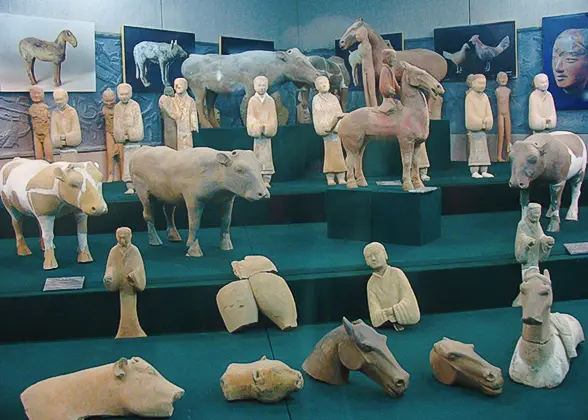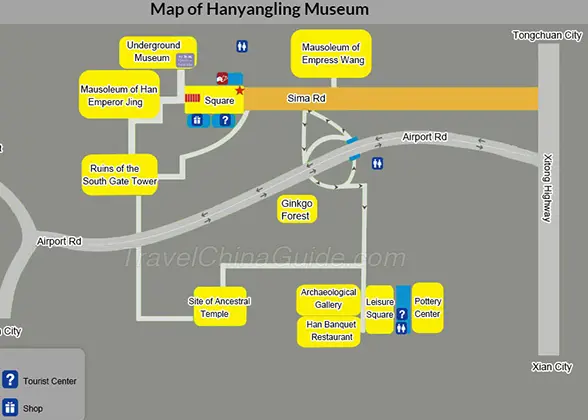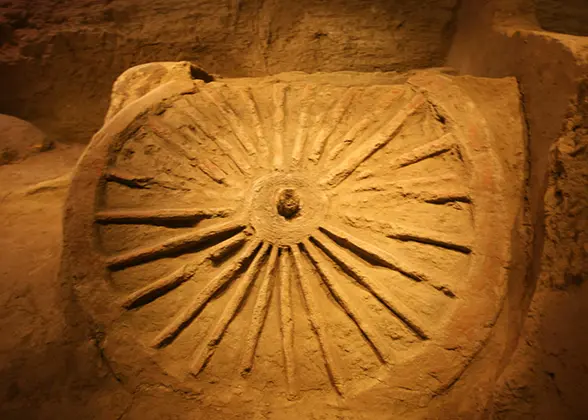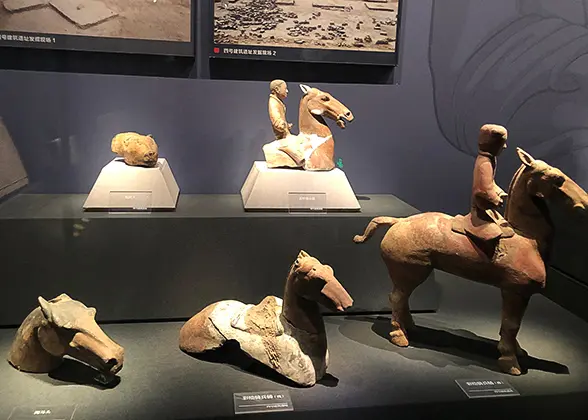Han Yang Ling Museum - Yangling Mausoleum of Han Dynasty
The Yangling Mausoleum of the Han Dynasty, in short Han Yang Ling, is located at Zhangjiawan Village, about 20 kilometers (12 miles) north of Xi'an City, Shaanxi Province. It is a joint tomb of Liu Qi, a notable emperor of the Western Han Dynasty (206 BC-24AD), and his empress Wang. It was built in the year 153 AD and covers an area of 20 square kilometers (4,942 acres). It is a magnificent and abundant cultural relic, comprising the emperor's tomb, empress' tomb, the south and north burial pits, ceremonial site, human sacrifice graveyard and criminals' cemetery. Neatly arranged and centered with the emperor's tomb, Han Yang Ling Mausoleum reveals the strict hierarchical social structure. The Outside Pits Exhibition Hall was opened in 2006 and is the first underground museum in China.
Emperor Liu Qi's Tomb
The emperor's tomb is at the center of Han Yang Ling Mausoleum. The subterranean chamber has passages on its four sides, thus the shape assembles the Chinese character 'ya (亚)'. This type of tomb was considered the best in ancient times. Around the tomb is a tall wall on each side, with four big gates at the middle of each wall. The south gate has been unearthed and opened for tourists.
|
|
There are 86 outside pits laid with burial objects. These pits vary in size and the length of these ranges from four meter (13 feet) to over 100 meters (328 feet). In the 1990s, archaeologists excavated ten outside pits and found that they were made to be enclosed space, like wooden cases. From the vestiges, those pits are believed to have original column frames, separating boards, doors and brick floor. Unearthed burial objects include naked pottery figurines, chariots and horses, weapons, articles of everyday use and a large number of pottery animals.
Empress Wang's Tomb
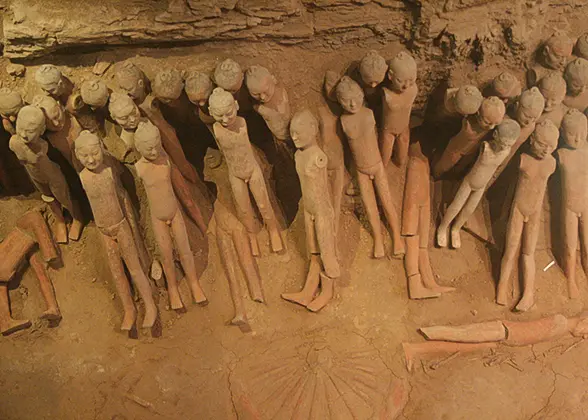 | 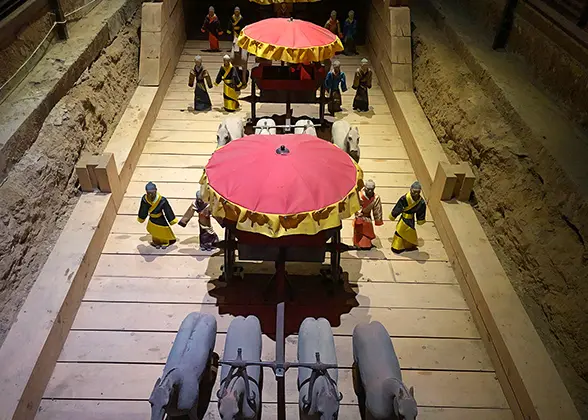 |
South and North Burial Pits
Luojing Stone Site (Ancestral Temple Site)
Outside Pits Exhibition Hall
|
|
How to get to Yangling Mausoleum of Han Dynasty
From Xi'an:
By Bus:
Take bus no. 117, 202, 207, 228, 230, 236, 266, 267, 289, 318, 336, 509, 600, 609, K618, 711, 717, 719, 723, 901, 932, You 10 and get off at City Library (Shi Tu Shu Guan) Station, and then take Tourist Bus No. 4 (You 4) to the terminal Han Yang Ling.
Hours of Tourist Bus No. 4 to Han Yang Ling 8:30 - 17:00 (hours of buses back: 09:30 - 18:00)
Frequency of Tourist Bus No. 4: 1 hour
Bus Fare: CNY 2
By Metro:
Take metro line 2 and get off at City Library Station, get out from Exit D and then you can find You 4 bus.
From Xianyang:
Take Xianyang Bus 5 from Xianyang Railway Station to get there directly.
Bus Fare: CNY4;
Hours: 07:00 to 19:00 (hours of buses back: 06:30 - 18:00);
Frequency: 1 hour.
Xi'an Bus / Metro Search
| Fee: | Entrance Charge: (excluding admiring images created by optical illusion) |
| Opening Hours: | Mar. - Nov. : 08:30-18:30 (tickets available from 08:30 to 17:30); |
China's First Simulating Archaeological Base Launched in Han Yang Ling
Covering an area of 1,200 square meters (0.3 acres), the base is divided into 8 excavation units, falling into three categories: the outside buried pits for funeral objects, architectural ruins, and tombs. In the excavation simulation, visitors are allowed to use professional archaeological tools to excavate under the guidance of archaeological experts. These tools include hand shovels, brushes, bamboo sticks, probing shovels (also named Luoyang shovels), etc. When a "ruin" or "relic" is discovered by visitors, experts share knowledge about artifacts, including identification, dating and usage on the spot. Visitors can experience the novelty and excitement of personally discovering relics and acquire interesting historical knowledge at the same time.
Is there any direct connection, for instance, a public bus? How long will this take? The Mausoleum looks quite close to the railway station. Or is it better by a taxi? What costs should we expect?
Many thanks.

